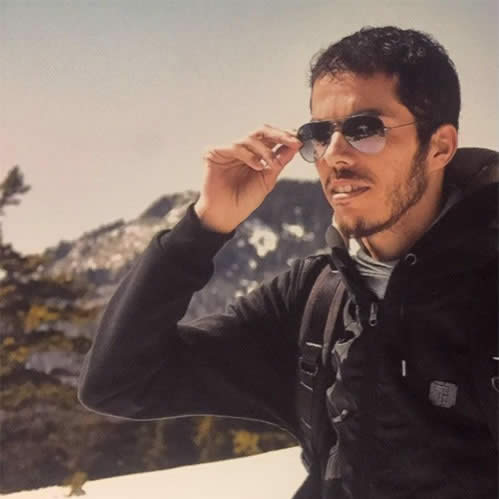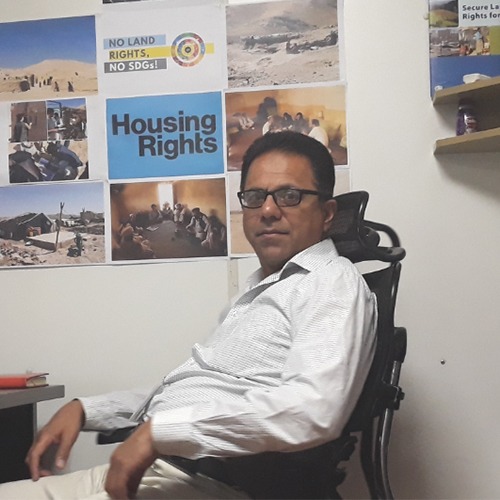Libya Mahmoud Rajab


In one distribution, we reach up to maximum 2000 migrants, and there is approximately 20 distributions a month in our unit.
Some of my other tasks include assessing emergencies and working closely with other staff members to locate the area of emergency, overseeing the implementation of emergency activities, and monitoring their effectiveness. I develop and monitor objectives, and produce reports, recommendations and proposals for emergency intervention. It’s important that we ensure compliance with national and international procedures and policies, and address strategies for addressing humanitarian needs, including mobilizing and tracking resources.
My day starts with checking my emails and getting ready to go out into the field if there is a request during the day. This would either be to conduct assessments in the centres or to prepare for distribution.
We evaluate the number of migrants, their nationalities, ages, and genders, and assess their needs. We then we coordinate with the team to decide when to proceed with the distribution which is usually the next day.
It is an advantage to distribute in the centres and other areas as this brings us closer to the beneficiaries. I have had cases at distribution where we would identify many migrants that want to return to their home country. In these cases I would contact my Project Manager to coordinate with other departments so they can assist in their return. It really amazes me and makes me feel very proud when I hear that these migrants have safely returned back to their homes or have fulfilled their needs.
During the sea rescue, migrants are emotionally destroyed and need so much support.
I feel so honored to help and support them during these hard times, whether it’s finding where their families are or handing out water bottles, clothes and blankets.
In order to work in this field you need to be patient and have good communication skills. You need good oral and written communication skills, have strong leadership abilities, excellent interpersonal skills and the ability to establish and maintain partnerships. Other skills would include a positive and constructive attitude, transparency, adaptability, have excellent negotiation and diplomatic skills – and of course, be committed to good.
I feel there is still hope despite what we go through.
I have been with CTG for a year and 9 months and all I have received is complete professionalism. CTG is the go-to whenever I have queries related to my contract and health insurance. I always receive swift responses and complete professionalism through my account manager. Hajar is a great support and very responsive at all times.
In my opinion, I feel that CTG has a great impact to all of our projects. I must say that some credit has to go to CTG for the accomplishments we achieve on ground. As a CTG consultant, I’m able to move effectively and efficiently in certain conflicted areas with the support and advice of our CTG Security Field Officer.
I think having more female field workers would be an extreme advantage to our team. I strongly believe that females are more attentive, and there are times where female beneficiaries would be more open to a female field worker than a male. The steps that need to be taken can be calling candidates to apply to intern roles or voluntary roles at our department. If they gain experience on the field, they can be eligible to apply to any new roles in future.
IDP Related News
Salah Khalifa, Libya
DTM Operations Assistant
Ahmad Zia Baha, Afghanistan
Programme Co-ordinator


